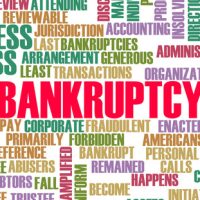Advanced Home Protection Loopholes in Bankruptcy

Illinois’ home equity exemption is different from many other bankruptcy exemptions. This exemption is value-based as opposed to item-based. So, it only protects a certain amount of home equity. Debtors who have lived in the same house for more than about fifteen years often have a substantial amount of equity in their homes. Furthermore, the exemption only applies to a primary residence. It usually doesn’t protect a lakeside cabin or other such residence.
These limitations sometimes give distressed debtors second thoughts about filing bankruptcy. Fortunately, the basic written exemption is only the beginning. A Chicago bankruptcy lawyer knows about obscure loopholes in the law, and knows how to make these loopholes work for distressed debtors. So, while a partnership with a lawyer is always an investment, it’s always an investment that pays rich dividends.
Schedule A Value
Debtors must declare the legal value of their assets, including their homes, on Schedule A. Many do-it-yourself filers assume that the Schedule A value is the same figure as the market value listed on a tax appraiser’s website. But a Chicago bankruptcy lawyer knows that’s not always the case.
Under Illinois law, debtors must list an asset’s as-is cash value, not its fair market value, on Schedule A. This rule also applies to motor vehicles, personal property, and all other Schedule A assets.
The as-is cash value of a home is usually a fraction of its fair market value. An initial offer from a “we buy ugly houses” home investors is usually pennies on the dollar.
Equity is a percentage of the value, not necessarily a figure. So, if the home’s Schedule A value is half its fair market value, the amount of equity is only half as much. Therefore, this strategy usually decreases the amount of equity, bringing it under the exemption ceiling.
Best Interests of Creditors
This rule usually applies to the aforementioned vacation homes, many of which are nonexempt under Illinois law. Trustees (people who manage bankruptcies for judges) may only liquidate vacation homes and other assets if such liquidation is in the best interests of the creditors.
Assume Rick has a lakeside cabin that’s worth $10,000. However, the cabin is in bad shape and needs major repairs totaling $8,000 to make it sellable. The trustee must pay all these costs, along with other sales costs, such as repossession expenses and auction fees. Furthermore, it’s highly unlikely that the cabin will fetch a good price at auction.
If the creditors wouldn’t make much money from the liquidation, the trustee cannot liquidate it, whether it’s exempt or not.
Lien Reclassification
This rule usually applies if the debtor bought a home with an 80/20 mortgage or has an outstanding HELOC (home equity line of credit) on the house, and the house’s value has declined.
If the home’s value isn’t high enough to secure both loans, perhaps because of the Schedule A value listed above, the judge could reclassify the smaller note, or a portion of it, as a dischargeable unsecured debt. This reclassification and discharge could save the owner thousands of dollars a year, making the senior mortgage easier to afford.
Connect With a Diligent Cook County Lawyer
No matter what kind of financial problem you are having, there’s a way out. For a free consultation with an experienced bankruptcy attorney in Chicago, contact the Bentz Holguin Law Firm, LLC. We routinely handle matters throughout the Prairie State.
Source:
ilga.gov/legislation/ilcs/documents/073500050K12-1001.htm


